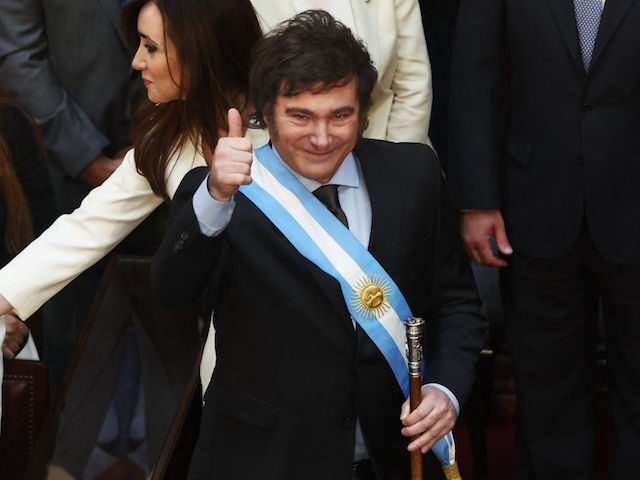Argentine President Javier Milei signed a decree on December 30 significantly restructuring the nation’s military, prompting the retirement of 22 army generals, seven admirals, and three brigadiers.
The decree, published on January 2, proposed the most significant changes to the armed forces’ leadership since 2003. Milei proposed in the decree the designation of new leadership positions across all branches of the Argentine Armed Forces and appointed Brigadier-General Xavier Julián Isaac to be head of the Joint Chiefs of Staff.
Commanders tied to the previous socialist government of Alberto Fernández were reportedly removed from the Army’s leadership structure, and the ascent of Milei’s preferred leaders prompted others to vacate their posts. In the Army, the designation of Brigadier-General Alberto Presti as the new top official triggered the automatic retirement of 22 senior generals.
The number of retired generals increased to 23, including the resignation of Juan Martín Paleo, who served as chief of the Joint Chiefs of Staff during Fernández’s presidency (2019-2023). The total retiring represents two-thirds of Argentina’s current pool of 55 generals.
Milei’s restructuring is the second largest of its kind in the nation’s history, surpassed only by the one carried out by late President Raúl Alfonsín at the time of Argentina’s return to democracy in 1983. The new restructuring is larger than the one carried out by late socialist President Néstor Kirchner in 2003, which prompted the retirement of 19 generals.
Argentine political scientist Fabián Calle told the Spanish newspaper El País that the major restructuring of the leadership of Argentina’s Armed Forces “has no ideological or political significance,” unlike the one signed off by Kirchner in 2003.
“When one looks at the names, it is a homogeneous generalship; none of them is considered either left or right wing,” Calle said.
The political scientist also told El País that he believes Presi’s designation as chief of the Army is because he is a “young” military man with a “good image” within the forces, adding that the restructuring responds to a “profound renewal of the army” based on Milei’s defense and security agenda.
“It is an important weapon in the government’s strategy for border control,” Calle added.
The restructuring will be reportedly accompanied by an extensive audit of the resources and functions within the Armed Forces and goes in hand with the austerity policies contained in the Necessity and Urgency Decree (DNU) executive order signed by Milei at the end of December that modifies roughly 350 socialist policies.
The DNU is part of Milei’s “shock stabilization plan” for Argentina after two decades of socialist policies left the country on the brink of total economic collapse. The executive decree is the companion piece of a massive 351-page, 664-article omnibus bill that, if passed, will enact sweeping reforms for Argentina.
During his presidential campaign, Milei promised to modernize Argentina’s defense by improving the nation’s military equipment and infrastructure, strengthening training, and adopting new technological and operational capabilities.
Milei also promised updates in the country’s defense policies to “better reflect the geopolitical environment” as part of Argentina’s realignment of its foreign policy towards “civilized” countries such as the United States and Israel. Prior socialist governments pushed the South American nation toward China, Iran, and other rogue nations.
A report published by the Argentine news outlet Infobae in November states that Milei’s government team is projected to carry out sweeping changes in Argentina’s military and defense in the short term, ranging from changes to military education, improvements in military wages and salaries, and changes to the nation’s defense and security laws.
Sources cited by Infobae at the time explained that the Argentine government will pursue changes to the nation’s Defense Law that will allow for the return for military support in police operations against major crime, drug trafficking, terrorism, and human trafficking networks. Current regulations only permit the use of the military in “actions of repression of any attempt to undermine national sovereignty coming from a foreign state force.”
Christian K. Caruzo is a Venezuelan writer and documents life under socialism. You can follow him on Twitter here.

COMMENTS
Please let us know if you're having issues with commenting.